Raising Chickens: Is It Worth It?
Important Note: When you buy through our links, we may earn a commission. As an Amazon Associate we earn from qualifying purchases. Content, pricing, offers and availability are subject to change at any time - more info.
There are scores of homesteading and permaculture channels on YouTube that proclaim the wonders of raising your own flock of chickens. It has gotten many people excited about keeping their own chickens for eggs and meat. The movement towards growing your own food is great, but often the practical and financial realities of raising chickens are downplayed or ignored.
Advertisement
Raising chickens is worth it if what you are after is ethically raised meat, truly free-range eggs, and the experience of farming poultry on a small scale. Raising chickens for meat or eggs is not always cheaper than just buying these products, and it takes lots of time and effort to manage them.
If you are considering getting a backyard flock and are wondering if raising chickens is worth it, this article has some valuable information and advice for you! Having kept a small flock of chickens for eggs and meat, I can share with you the good, the bad, and the ugly. You can decide for yourself if raising chickens is worth it for you and your family.
- Is Raising Chickens Worth The Cost And Effort?
- How Much Does It Cost To Keep Chickens?
- Keeping Chickens For Eggs Vs Meat
- Advantages
- Disadvantages
- When Is It A Good Idea To Raise Your Own Chickens?
- When Should You Not Keep Backyard Chickens?
- How Many Chickens To Start With?
- Is Raising Chickens Worth It?
Is Raising Chickens Worth The Cost And Effort?
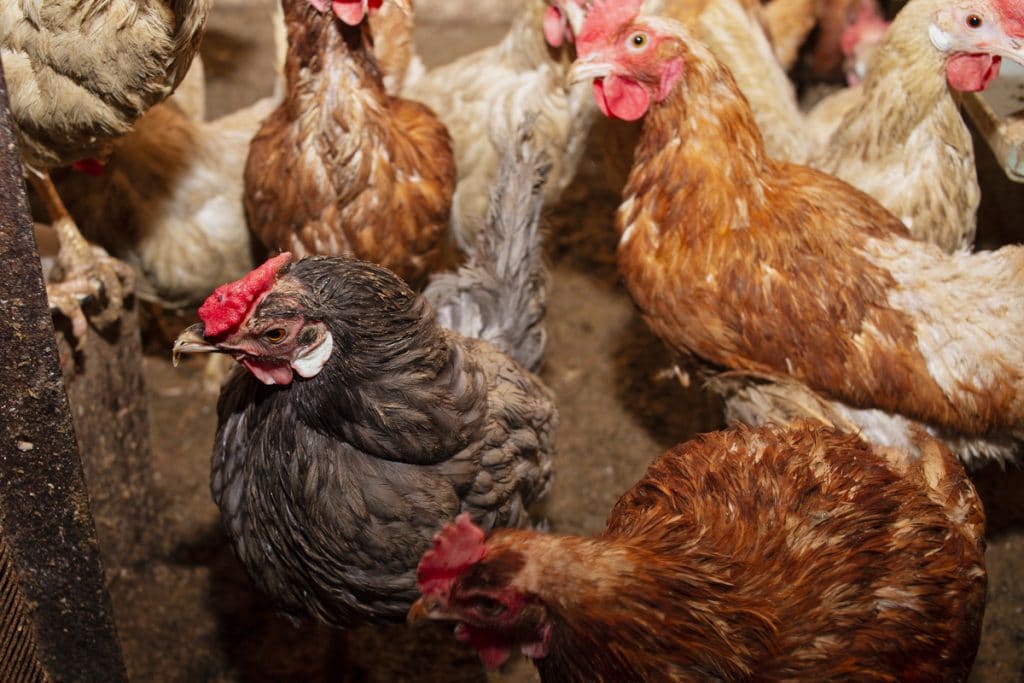
Raising your own chickens for eggs or meat is rarely cheaper than buying poultry products from the grocery store. Commercial chicken and eggs are mass-produced, so they cost less than the eggs and meat we can grow ourselves.
However, raising your own flock of chickens for eggs or meat can be a very rewarding experience. It feels great to produce your own food right in your backyard. It’s comforting to know that the chickens that supply you with eggs and meat live healthy, happy lives and are not confined to cages.
Advertisement
Chickens are sweet animals to have in your backyard. Children love interacting with them, and they are hilarious to watch as they scratch around your garden.
However, raising chickens does take a lot of effort. You need to consider what your time is worth. You will spend at least 4 hours a week tending to them. Consider if you can afford to devote this much time to your chickens and factor in the cost of your time.
You have to arrange for someone to feed and water them and collect eggs when you go away on holiday. Chickens are a big responsibility!
You will not be sleeping in if you keep a flock of chickens. Every morning, you will have to open their coop, check on their water and feed and collect eggs. If you have a rooster, it’s optimistic to think you can go back to sleep.
Predators are a reality, whether you live in an urban or rural area. You will lose chickens along the way, and dealing with sick, injured, or dead chickens is not pleasant. Factor in the medical costs that come with keeping chickens.
How Much Does It Cost To Keep Chickens?
The initial cost of setting up a well-designed coop and getting chickens is quite expensive, but the running costs of keeping a flock are relatively low. You can keep a flock of 5 birds for around $25/month.
Advertisement
There are some ways to diminish the cost of raising chickens. Having a small backyard flock does not have to break the bank.
Chickens Are Expensive To Keep
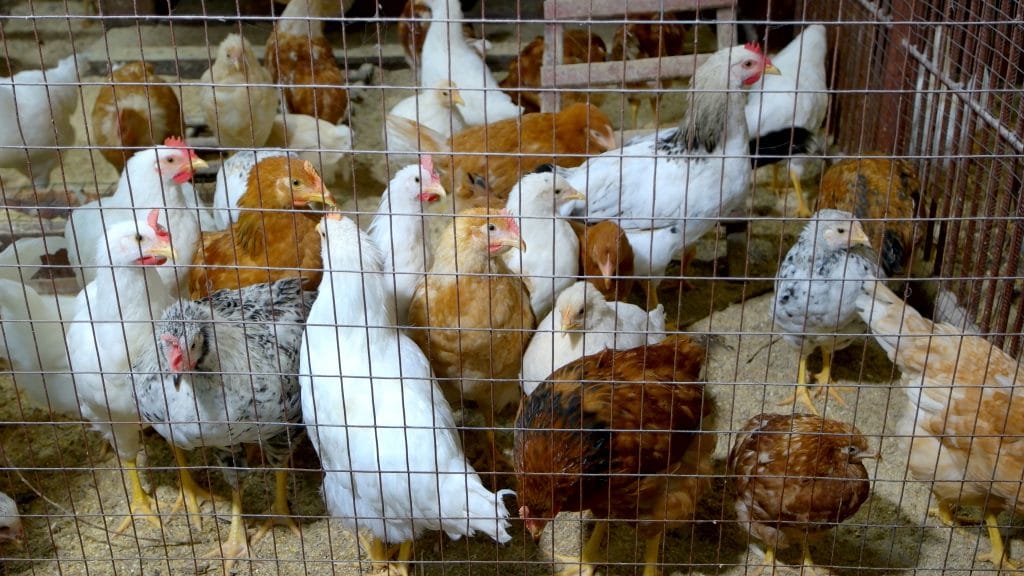
It is important not to downplay the costs involved in raising chickens. Consider the following start-up costs:
- A good quality coop and run. If you build your own coop, you can get away with spending less than $100, but if you buy a ready-built coop, you are looking at between $200 and $2000.
- An incubator if you are hatching the chicks yourself. Ones big enough for 12 eggs cost around $100.
- The cost of a brooder to raise hatchlings. You can find models for between $35 and $100.
- Day-old chicks cost $1 or $2 each, and a dozen fertilized eggs cost between $20 and $200 depending on the breed.
The following are ongoing costs:
- Bedding – straw or wood chips. A small bale of straw costs between $2 and $6.
- Feed – it costs around $30 a month to feed a small flock of 5 birds. It costs at least $2 per month to feed one hen.
- Medical costs – mite treatment, deworming medication, and treatments for wounds. These costs may not be monthly. Buy supplies once-off to make a first-aid kit for your chickens. It should cost around $10.
- Your time has a cost.
Can You Save Money Raising Your Own Chickens?
Eggs from the grocery store cost around $3 per dozen ($5 for organic eggs). Let’s say your family goes through 4 dozen eggs a month. That only costs $12 to $20.
Two hens can produce a dozen eggs a week. If you spend $15 per month on feed and $5 on bedding, then a month’s supply of eggs will cost around $20 – roughly the same as 4 dozen supermarket eggs.
A whole, organic chicken costs about $16 from the supermarket. A non-organic chicken is around $7 to $10. Let’s say you eat 6 chickens per month – that is around $90. You could raise a flock of broilers for cheaper than you could buy them.
It is possible to raise chickens for eggs and meat and save money, but often this is not the case! The smaller your flock and the less space you have to keep your chickens, the more you will spend on raising them.
Advertisement
Huge commercial farms can afford to produce eggs and broilers at a really low cost due to their economy of scale. In small backyard flocks, your cost per bird is higher.
There are ways to reduce the costs of keeping chickens so that you can save some money and hopefully spend less than you would at the grocery store buying eggs and meat!
- Minimize feed costs by letting them free-range. You can give chickens less feed if they have access to forage.
- Chickens that have access to a large, active compost heap require much less feed.
- Buy feed in large quantities from your local tractor supply so that you pay a lower bulk price.
- Grow your own forage for the chickens. Protein-rich legumes like vetch, alfalfa
- Slaughter the chickens yourself, rather than paying someone to do it.
Keeping Chickens For Eggs Vs Meat

Raising chickens for meat (broilers) is slightly different to raising egg-laying chickens.
Firstly, certain chicken breeds are better broilers, and other breeds are better layers. For example, Leghorn, Australorp, and Rhode Island Red are excellent laying breeds. Cornish Cross, Jersey Giant, and Big Red broilers are better breeds for meat.
Broilers grow much faster than layers and reach a larger size. They need a more spacious coop and run. You can keep male and female broilers together in one coop.
If you keep meat chickens and laying hens, it is important to keep them in separate coops. You would not want a male broiler to mate with your laying hens.
Broiler chickens are ready for slaughter at around 12 weeks old. Because hens only start laying eggs at 16 to 20 weeks old, you do not need to bother with nest boxes for your broilers. Only laying hens need nest boxes.
Is Raising Chickens For Eggs Worth It?
Raising chickens for eggs is totally worth it if:
- You want the experience of keeping chickens as pets
- You want fresh, free-range eggs from happy, healthy hens
- You spend more than $30 a month on eggs
- You live in a rural area and have lots of space for chickens to free-range
- You have a big, active composting system
If the effort of tending to the chickens, collecting eggs, keeping their coop clean, and taking care of sick chickens sounds like it’s a bit much for you, it is not worth keeping chickens. You won’t save enough money to justify your effort.
Advertisement
Only keep chickens if you think you will enjoy the experience. Do not keep chickens to save money because you will always be able to buy eggs for less than you can produce them for.
Is Raising Meat Chickens Worth It?
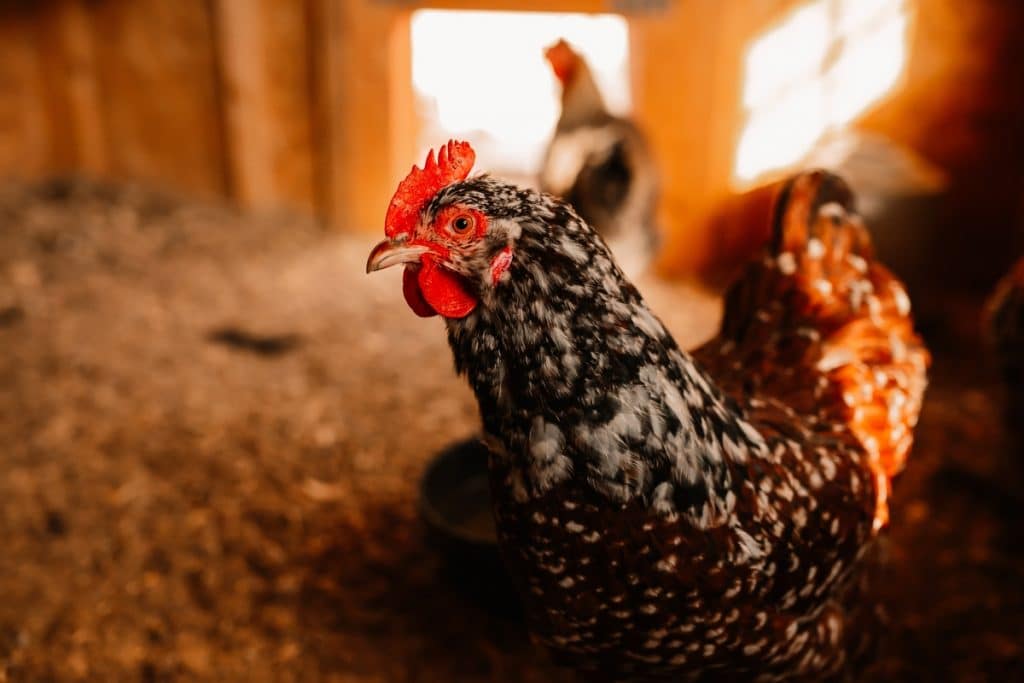
Raising chickens for meat is worth it if:
- You can slaughter the birds yourself. It costs around $3 per bird to have them professionally butchered.
- You can raise the chickens for less than $13 each. If you spend more than this, you might as well buy organic chickens from the supermarket.
- You have the space for a large coop.
- The advantages outweigh the disadvantages for you.
Advantages
There are so many advantages that make raising and keeping chickens feel worthwhile. Don’t forget to consider the value that a flock of backyard chickens can add to your life.
- Chickens produce amazing manure for the garden.
- They can control pests in the garden.
- You get high-quality, fresh eggs daily.
- You can get antibiotic-free chicken meat.
- Chickens make sweet, entertaining pets.
- Keeping chickens teaches children responsibility, and they learn about the importance of sustainable living from a young age.
- You reduce your carbon footprint by producing your own food.
- You do not support inhumane chicken farming practices.
- You can recuperate some of the running costs by selling eggs or whole chickens.
- Reduce your household waste by feeding kitchen scraps to the chickens.
Disadvantages
The reality of keeping a backyard flock of layers or broilers is not always wonderful! There are some drawbacks to keeping chickens:
- The initial cost of setting up a coop can be quite high.
- It takes time and effort to raise and tend chickens.
- If you do not keep the coop and run clean, chickens can be smelly.
- Chickens can develop illnesses and require medical care.
- Chickens are noisy creatures (even the “quieter” breeds like Orpingtons).
- You have to hire someone to look after your flock when you go away.
- Slaughtering chickens is a messy, intimidating process.
- Losing chickens to predators is inevitable.
- Chicken feed attracts rats and mice.
When Is It A Good Idea To Raise Your Own Chickens?
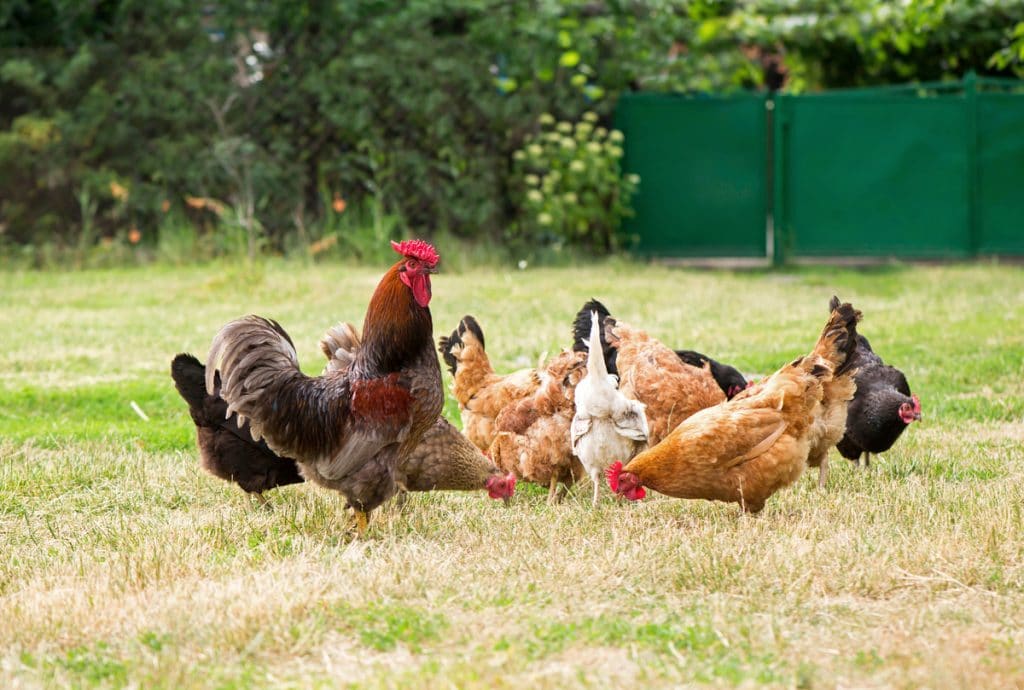
So, when is raising chickens a worthwhile idea?
Firstly, keeping chickens is well worth it if you live in a rural area and have the space to let the chickens free-range. This way, you will keep the feed costs (the biggest expense) low.
In urban areas, it is important to review the zoning laws before you invest in a backyard flock. Keeping chickens is not allowed in some neighborhoods. If you live in an area where they are allowed, and you feel the pros outweigh the cons, then keeping chickens is worth it.
If you have a young family with children, keeping chickens is a fantastic idea. Your kids will learn about many different topics through caring for the birds. In this case, they can be productive pets.
When Should You Not Keep Backyard Chickens?
If you feel a twinge of hesitation after reading the list of disadvantages, maybe raising chickens is not for you. What are scenarios in which you should not consider getting chickens?
- If you and your family like to go away frequently, chickens will be inconvenient.
- If you do not have the time for daily maintenance.
- If your local zoning laws do not permit keeping backyard poultry.
- If the thought of cleaning chicken poop and replacing soiled chicken bedding makes your stomach turn.
- If you are not prepared to deal with sick or injured birds.
How Many Chickens To Start With?
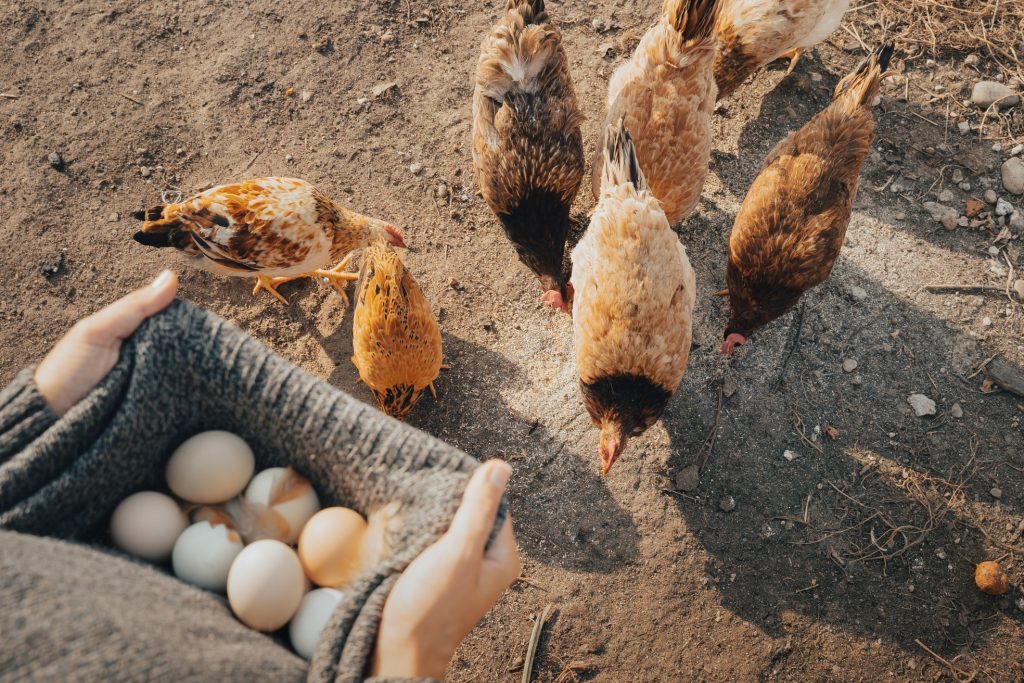
If you have read this article and still feel that raising chickens is a worthwhile endeavor, you may be wondering what a good flock size is, to begin with?
If you have a small to medium-sized garden, six hens are great to start out with. You should get 3 or 4 eggs per day, and the cost of feeding them will balance with the cost of eggs.
Is Raising Chickens Worth It?
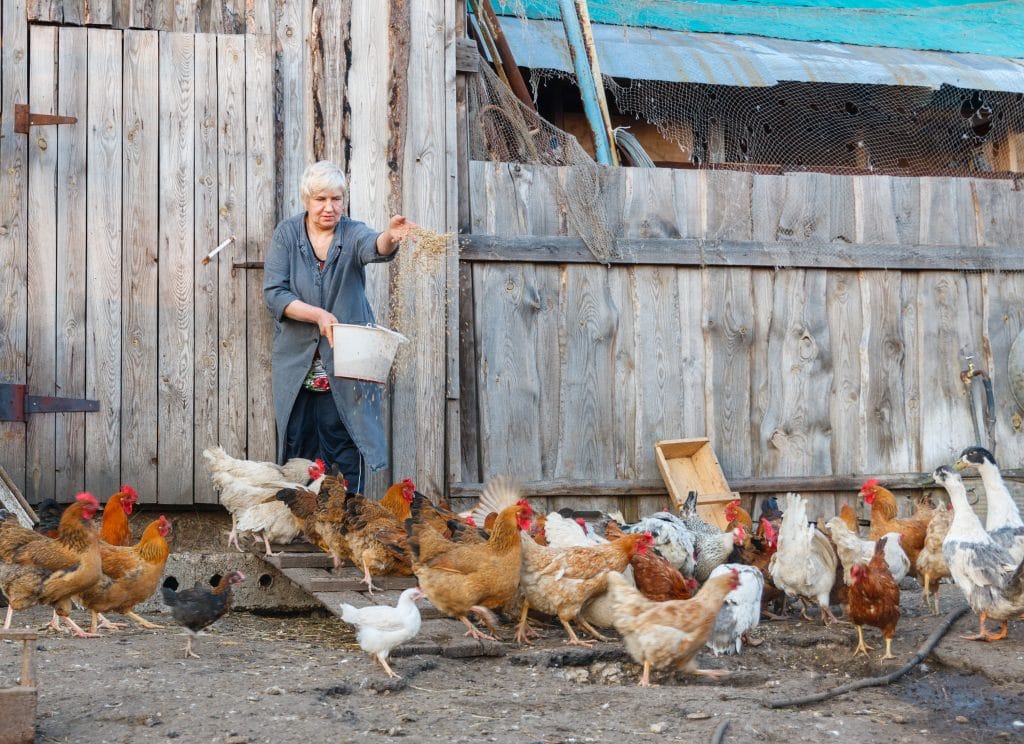
It is worthwhile raising chickens if you want ethically sourced meat and eggs and the experience of producing your own food. However, if being thrifty is your priority, then it is cheaper to keep buying meat and eggs from the supermarket.
Raising chickens is hard work, but it can be incredibly rewarding. Fresh eggs and organic meat are just some of the advantages of keeping a backyard flock. It costs about $25 a month to keep a flock of 5 laying hens and considering organic free-range eggs cost $5 per dozen, you will not save huge amounts of money unless you use many eggs.

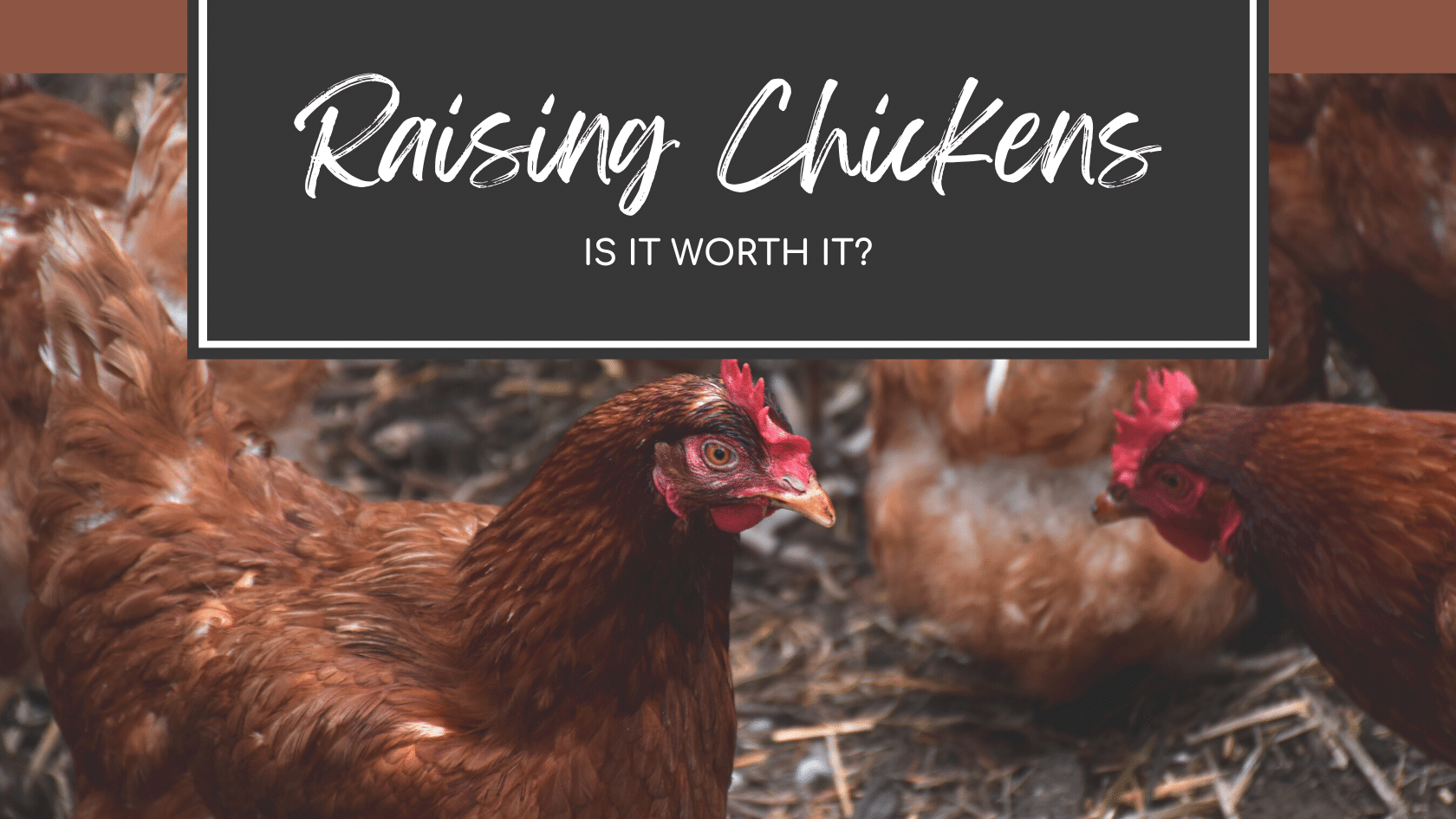
 Please Support Me on Ko-fi
Please Support Me on Ko-fi